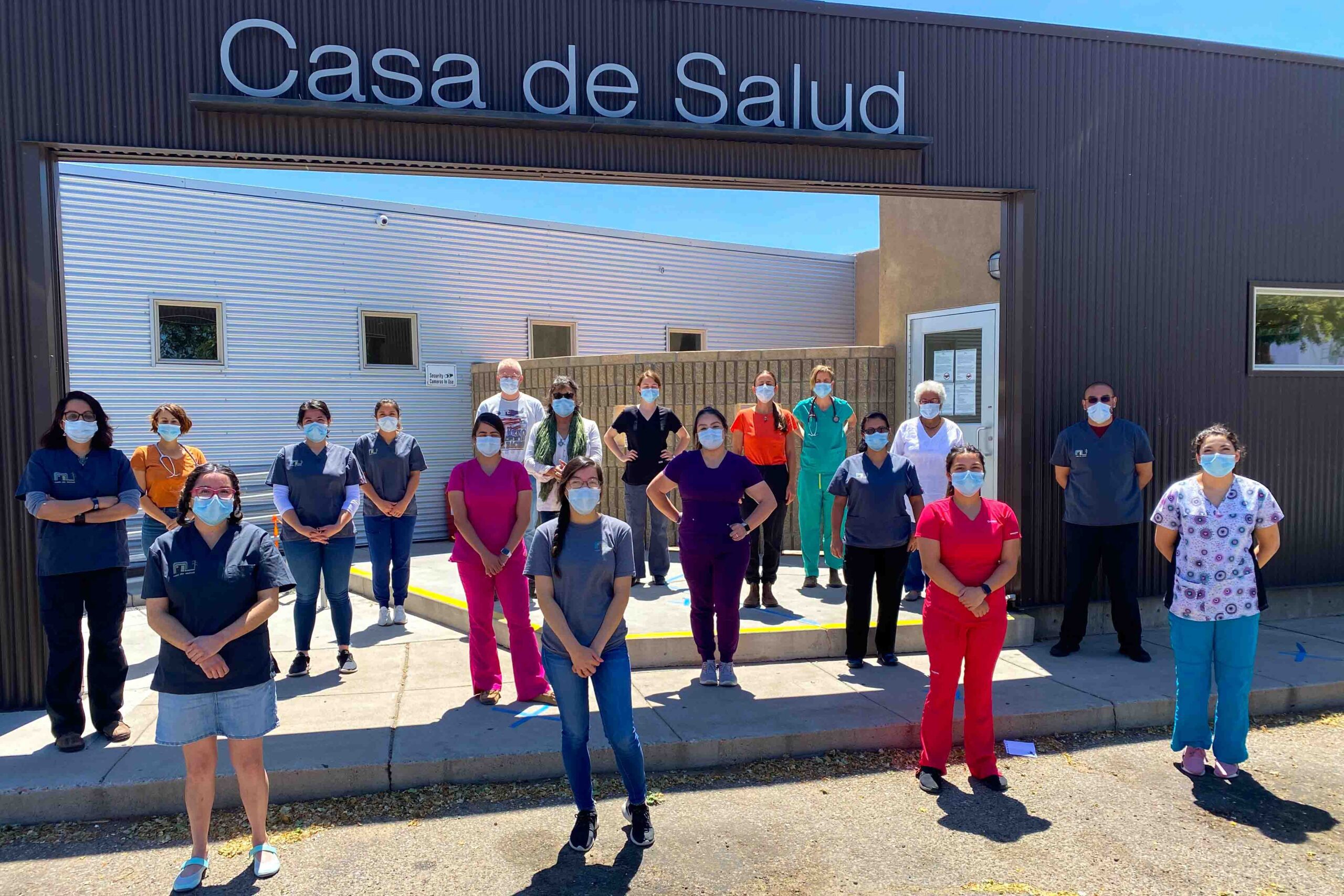Offering ‘health and healing services for the whole family,’ may not be surprising for a local health clinic; however, providing ‘culturally humble integrative primary care’ makes Casa de Salud unique. The organization is actively engaged in efforts to make their approach the norm, “Any clinic, any organization, any policy change that just make healthcare more navigable and more affordable for people is something that we should be striving for as a society,” shares Margit, Casa de Salud’s Family Nurse Practitioner.

At Casa de Salud, they see healthcare through a lens that illuminates the histories of inequalities, oppressions, and structural forces that affect their community. With a focus on health equity and wellness for all, they are delivering affordable, integrative health services rooted in dignity-based care to everyone in their community. Since 2014, Casa de Salud has partnered with Vitamin Angels to deliver prenatal vitamins and minerals at no-cost to their pregnant clients.
Click below to hear why Casa’s clinic is imperative to the needs of their community and clients:
“I feel like healthcare is a human right and I think a lot of people would agree with that statement. But I think there’s just so many barriers in place that make it inaccessible to a lot of people,” shares Margit. Consistent with a position paper published by American College of Physicians in 2020, clinics like Casa de Salud understand barriers to health exist due to a variety of factors such as race and ethnicity, gender or gender identity, location, age, language, national origin, and health literacy.
Understanding that language barriers in their community contribute to health disparities for patients with limited English proficiency, Casa offers bilingual services and materials to every single one of their clients.1
For seventeen years, Casa has prioritized offering dignity-based medical services because they understand that discrimination has been a significant barrier to accessing health services for their clients. “An alarming number of our patients come to us and report that this is the only place that they have been provided services whether it be for syringe exchange, for addictions treatment, for women’s health care, for any of the types of care that they come to do. But they get treated with dignity and respect. And that is something that they have, unfortunately very rarely in many of their interactions in other spaces where being a monolingual Spanish speaker is met with derision,” shares Director of Operations, Elizabeth Boyce.

Since Casa’s conception as a clinic, they have been rooted in the care that South Valley and Albuquerque residents wanted and felt they needed. In the services they offer, they have actively targeted the clientele who have not received good health care, adequate education, or received the services that are available to the majority of people in the U.S.
Click below to hear more from Casa’s staff on how they are filling the gaps and providing care for their clients:
Casa de Salud is committed to being an accessible clinic where all Albuquerque community members can receive essential healthcare services with dignity and respect. They have cultivated a practice that shows that centering the needs of people at the core of your mission cultivates effective and impactful results.
As a public health nutrition organization, Vitamin Angels is committed to addressing health care disparities. However, our efforts never stand alone; they stand alongside our colleagues at Casa de Salud and others who are calling for the comprehensive efforts by multiple sectors of society to address larger inequities that exist in our healthcare system and world at large.3
Donate today and join our global community who are working toward an equitable and healthy world for everyone, everywhere.
1. Butkus R, Rapp K, Cooney TG, Engel LS; Health and Public Policy Committee of the American College of Physicians. Envisioning a Better U.S. Health Care System for All: Reducing Barriers to Care and Addressing Social Determinants of Health. Ann Intern Med. 2020 Jan 21;172(2 Suppl):S50-S59. doi: 10.7326/M19-2410. PMID: 31958803.
2. Nong P, Raj M, Creary M, Kardia SLR, Platt JE. Patient-Reported Experiences of Discrimination in the US Health Care System. JAMA Netw Open. 2020;3(12):e2029650. doi:10.1001/jamanetworkopen.2020.29650
3. Williams, D. R., & Rucker, T. D. (2000). Understanding and addressing racial disparities in health care. Health care financing review, 21(4), 75–90.

